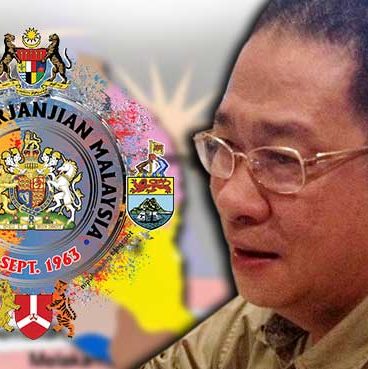
(FMT) – Any attempt to change the agreement, he said, must get the consent of all signatories of the agreement
Sabah rights activist Zainnal Ajamain has sought to correct what he says is the erroneous belief that the status of the East Malaysian states can be reduced to the level of the individual peninsular states by amending the Federal Constitution.
Speaking to FMT, he noted that attempts to do so had been made more than 600 times since 1963 but the terms of the Malaysia Agreement (MA63) still held.
Neither could the peninsular states demand the same rights that Sabah and Sarawak were demanding because they were not party to MA63, he said.
Furthermore, he added, the peninsular states were not considered in the Inter-Governmental Committee (IGC) Report of 1962 as being entitled to rights that were equal to those of the East Malaysian states.
“These states, under the Federation of Malaya, gave up their power to the central government,” he said.
“The Federation of Malaya, which was formed in 1957, is a unitary state, controlled by the central government. On the other hand, when Malaysia was formed, it was an agreement between the United Kingdom, the Federation of Malaya, Singapore, Sabah and Sarawak.
“It was meant to be a federation of states with Singapore, Sabah and Sarawak as equal partners of Malaya.”
The central government of that federation, he said, acted on behalf of the Malayan states, having been given full power over their sovereignty.
He referred to a suit the Kelantan government brought against the MA63 and Malaysia Act just days before the Malaysian Federation came into being. One of the arguments put forward by Kelantan was that the Malaysia Act in effect abolished the Federation of Malaya.
Zainnal said the failure of the suit was proof that the Federation of Malaya still existed.
He said Sabah, Sarawak and Singapore gave up their powers with conditions that were stipulated under the Malaysia Agreement, an international treaty that cannot be simply revoked or deemed irrelevant 54 years later.
Any attempt to change the agreement, he said, must get the consent of all signatories of the agreement.
The only time the agreement was ever changed since it was signed on July 9, 1963, was on Aug 28, 1963, and this was in order to change its effective date from Aug 31 to Sept 16.
“All parties can change the agreement,” he said. “They can add or take away any of the 53 rights afforded to Sabah and Sarawak, as written in the agreement.
“That is not the problem. The problem is who will represent the Federation of Malaya? The current federal government is not the government of the Federation of Malaya. It is the government of the Federation of Malaysia.
“So, if they want to go back to the discussion table, reinstate the Federation of Malaya first. And I think once that is done, then the people can see things more clearly and their understanding will hopefully be better.”
With the restoration of the Federation of Malaya, he said, then all parties could agree to write a new federal constitution. He noted that this was what the Malaysia Agreement instructed the federal government to do.
Since Singapore has left Malaysia, it is no longer a party to the agreement and, therefore, does not need to be included in any effort to amend it.
“The answer is not amending the current constitution because it cannot go beyond the Malaysia Agreement. They tried. More than 600 times, they tried. Yet they failed.
“On the other hand, a new constitution will make Malaysia permanent. It will also guarantee our autonomy, a full autonomy. We will be states like Scotland in the United Kingdom, having full control of our economy and politics while the federal side takes care of our foreign diplomacy and security.
“But we still sympathise with the states in the Federation of Malaya.”


No comments:
Post a Comment
Note: Only a member of this blog may post a comment.